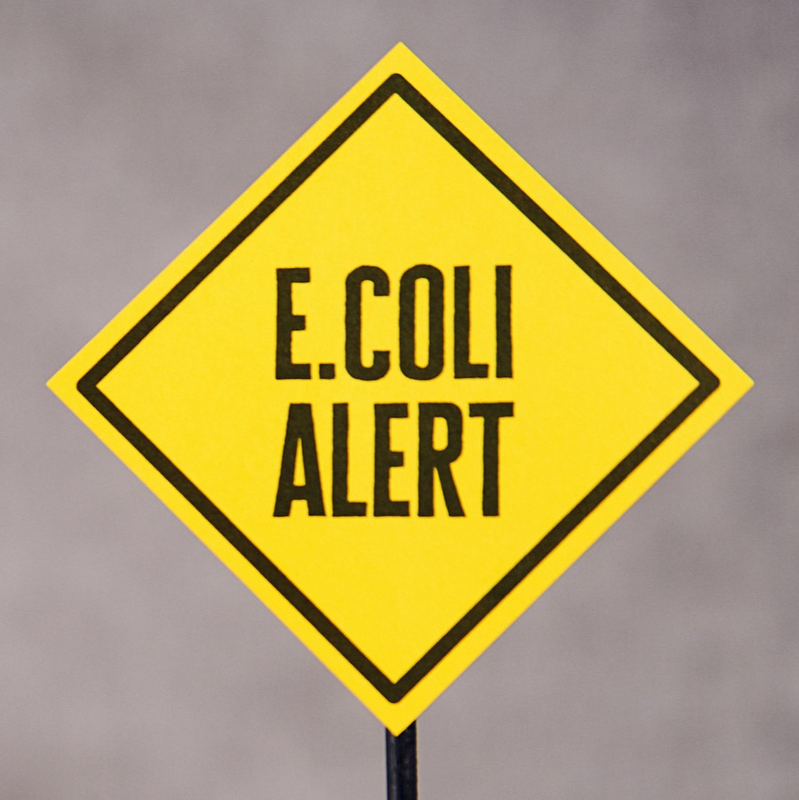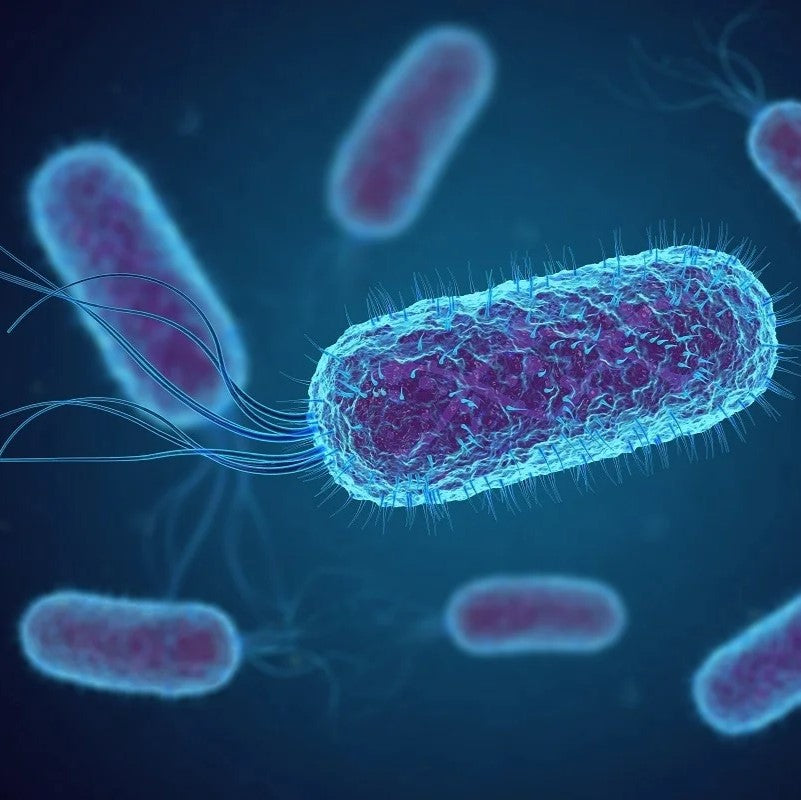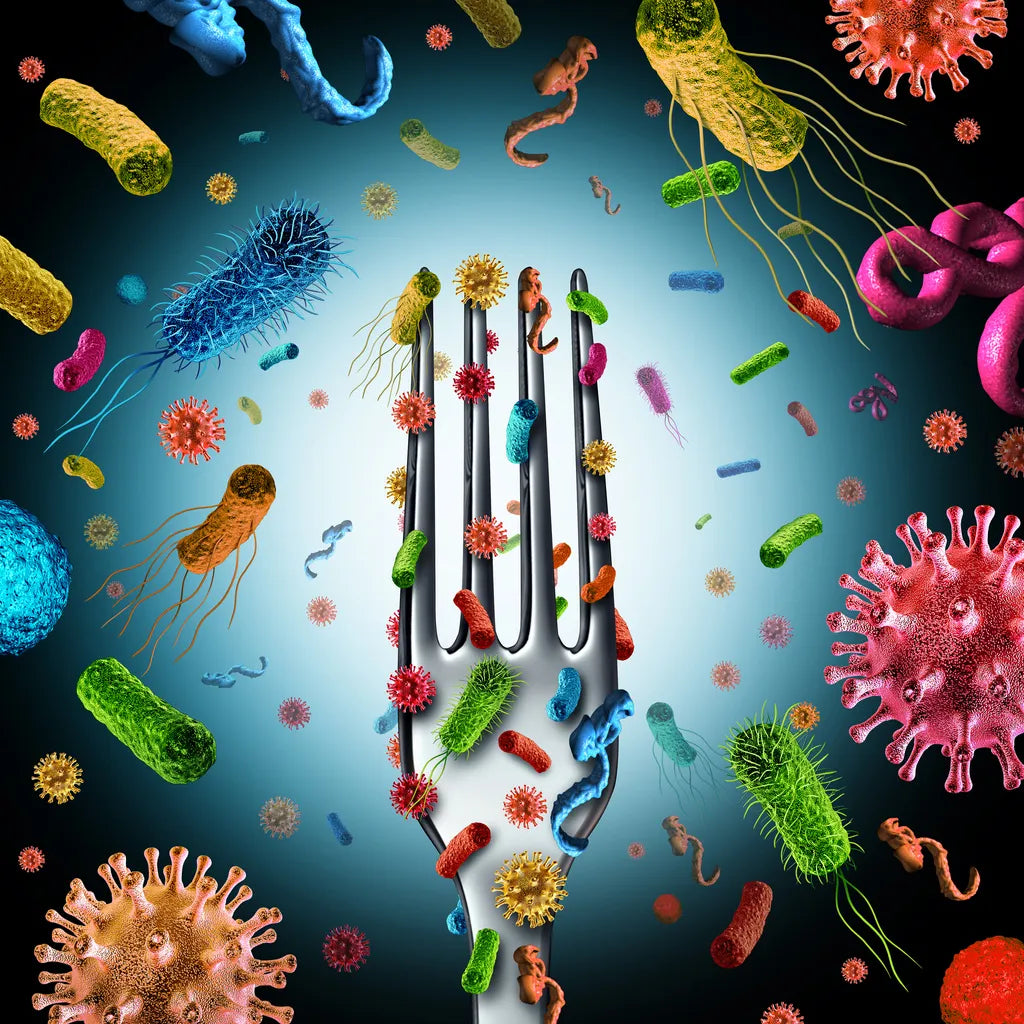Escherichia coli, comúnmente conocida como E. coli, es un tipo de bacteria que existe de forma natural en los intestinos de los humanos y los animales. Aunque la mayoría de las cepas de E. coli son inofensivas e incluso beneficiosas para la salud digestiva, ciertas cepas, como E. coli O157, pueden provocar enfermedades graves y, en ocasiones, potencialmente mortales. La Organización Mundial de la Salud (OMS) y los Centros para el Control y la Prevención de Enfermedades (CDC) han destacado repetidamente la carga mundial de las infecciones transmitidas por alimentos causadas por cepas patógenas de E. coli. Estas infecciones no solo provocan síntomas gastrointestinales severos, sino también complicaciones de salud a largo plazo, lo que subraya la importancia de las medidas de seguridad alimentaria en la vida diaria.
Introducción a Escherichia coli (E. coli)
Las bacterias E. coli suelen ser inofensivas y forman parte de la flora intestinal normal tanto en humanos como en animales. Sin embargo, ciertas cepas, como E. coli O157, son altamente patógenas y pueden causar infecciones peligrosas. Estas bacterias producen toxinas Shiga, que dañan el revestimiento de los intestinos, provocando colitis hemorrágica (diarrea con sangre) y otras complicaciones graves.
E. coli O157 ha sido una causa frecuente de brotes alimentarios en todo el mundo. Por ejemplo, un brote en Estados Unidos en 2018, vinculado a lechuga romana contaminada, resultó en más de 200 casos de enfermedad y cinco muertes. En 2011, un brote en Europa causó más de 4,000 infecciones y 50 muertes, lo que demuestra la naturaleza extendida y peligrosa de estas infecciones.
Cómo Llega la E. coli a los Alimentos
Las bacterias E. coli pueden contaminar los alimentos de varias maneras, comenzando en la granja y continuando durante la preparación de los alimentos. Los principales factores que contribuyen a la contaminación incluyen:
- Agua Contaminada para el Riego: E. coli suele entrar en la cadena alimentaria a través del agua utilizada para regar los cultivos. Si el agua está contaminada con heces animales o aguas residuales sin tratar, las bacterias pueden transferirse a los productos frescos como la lechuga, las espinacas y otras verduras de hoja verde.
- Contaminación Cruzada en la Cocina: Durante la preparación de los alimentos, E. coli puede propagarse de la carne cruda a otros alimentos a través de las manos sucias, las tablas de cortar y los utensilios de cocina. Esto es especialmente común con la carne molida cruda, que puede albergar bacterias en su interior.
- Prácticas Insalubres de Procesamiento de Alimentos: La falta de higiene en mataderos, plantas procesadoras y fábricas de envasado puede contribuir a la propagación de E. coli. El estiércol utilizado como fertilizante también puede contaminar los cultivos si no se trata adecuadamente.
- Desechos Animales en la Agricultura: E. coli se encuentra comúnmente en los intestinos del ganado. Si las heces animales se utilizan como fertilizante o están presentes cerca de los cultivos, pueden contaminar fácilmente los productos frescos.
Según investigaciones de los CDC, los alimentos comúnmente asociados con brotes de E. coli incluyen carne molida poco cocida, leche no pasteurizada, quesos blandos y verduras crudas como la lechuga, las espinacas y los brotes. La Organización de las Naciones Unidas para la Alimentación y la Agricultura (FAO) también destaca que el manejo inadecuado de estos alimentos aumenta significativamente el riesgo de contaminación.
Riesgos para la Salud por Contaminación con E. coli
Las infecciones por E. coli pueden provocar una amplia gama de síntomas, cuya gravedad varía según la cepa involucrada. Algunos de los síntomas más comunes incluyen:
- Dolores abdominales intensos
- Diarrea, a menudo con sangre
- Vómitos
- Fiebre
En los casos más graves, especialmente con E. coli O157, las infecciones pueden derivar en síndrome urémico hemolítico (SUH), que causa insuficiencia renal e incluso la muerte. Los niños, los ancianos y las personas con sistemas inmunitarios debilitados son particularmente vulnerables a las complicaciones graves derivadas de las infecciones por E. coli.
Un estudio publicado por el *New England Journal of Medicine* encontró que las infecciones por E. coli provocan decenas de miles de hospitalizaciones cada año en todo el mundo, con efectos a largo plazo que pueden incluir enfermedad renal crónica e hipertensión.
Cómo Prevenir la Contaminación por E. coli en la Vida Cotidiana
Prevenir las infecciones por E. coli requiere prestar atención a la seguridad alimentaria, la higiene y el almacenamiento y cocinado adecuados de los alimentos. Algunas estrategias clave incluyen:
- Manejo y Almacenamiento Correcto de los Alimentos: Mantén siempre las carnes crudas separadas de otros alimentos para evitar la contaminación cruzada. Guarda los productos perecederos en el refrigerador y cocina las carnes a una temperatura interna segura (160°F o 70°C para carne molida).
- Prácticas de Lavado Seguras: Lava bien las frutas y verduras bajo agua corriente para eliminar la suciedad y los posibles contaminantes. Sin embargo, los métodos de lavado estándar pueden no ser suficientes para eliminar las bacterias de las superficies o estructuras internas de algunos alimentos.
- Higiene en la Cocina: Lava bien las manos con jabón antes y después de manipular alimentos, especialmente carne cruda. Desinfecta las tablas de cortar, cuchillos y superficies después de cada uso para reducir la propagación de bacterias.
Cómo Milerd Detoxer Puede Ayudar a Prevenir la Contaminación por E. coli
Aunque los métodos tradicionales de limpieza de alimentos ayudan a reducir parte de la contaminación, el Milerd Detoxer ofrece una solución más avanzada y respaldada por la ciencia para la seguridad alimentaria. Diseñado con tecnología de vanguardia, el Milerd Detoxer combina procesos de limpieza ultrasónica y oxidativa, garantizando que bacterias dañinas como E. coli sean eliminadas de forma efectiva de las superficies de los alimentos.
El Detoxer ha sido rigurosamente probado en laboratorios europeos, mostrando resultados impresionantes:
- 97.6% de reducción de pesticidas
- 99.9% de eliminación de metales pesados
- 96.3% de eliminación de moho
Esta combinación de ondas ultrasónicas y limpieza oxidativa ayuda a eliminar no solo contaminantes superficiales, sino también bacterias incrustadas dentro de la estructura de los alimentos. Las investigaciones demuestran que los métodos de lavado tradicionales suelen fallar en eliminar completamente las bacterias, especialmente en alimentos con superficies complejas como las hojas verdes.
Comparación de los Métodos de Limpieza Tradicionales con Milerd Detoxer
Los métodos tradicionales de limpieza de alimentos, como el enjuague con agua o el uso de vinagre, pueden reducir parte de las bacterias superficiales, pero no eliminan por completo microorganismos como E. coli. Según estudios publicados en el *Journal of Food Protection*, el enjuague con agua reduce las bacterias solo en un 50%, mientras que los métodos avanzados, como los empleados por el Milerd Detoxer, ofrecen una eficacia mucho mayor.
El sistema de acción dual del dispositivo limpiador de alimentos garantiza una limpieza completa, alcanzando bacterias en áreas de difícil acceso. Además, su proceso no depende de productos químicos agresivos, lo que lo convierte en una opción ecológica y sostenible.
Beneficios de Usar Milerd Detoxer para la Seguridad Alimentaria
El Milerd Detoxer ofrece varios beneficios únicos que lo convierten en una herramienta invaluable para garantizar la seguridad de los alimentos:
- Eliminación de Microorganismos Nocivos: Elimina eficazmente bacterias, virus y pequeños parásitos, incluyendo E. coli, sin necesidad de limpiadores químicos.
- Conservación de Nutrientes: A diferencia de otros métodos que degradan la calidad de los alimentos, el Detoxer preserva los nutrientes esenciales, garantizando que los alimentos sigan siendo seguros y nutritivos.
- Facilidad de Uso: El dispositivo cuenta con una pantalla táctil intuitiva y es portátil, lo que lo hace conveniente tanto para el hogar como para viajes. Puede completar hasta 20 ciclos de limpieza con una sola carga (batería de 3600 mA/h).
- Ecológico: Al reducir la necesidad de productos químicos, el Milerd Detoxer promueve una preparación de alimentos más sostenible.
Protégete de la Contaminación por E. coli: ¡Actúa Ahora!
Para reducir el riesgo de infecciones por E. coli, es vital implementar medidas completas de seguridad alimentaria, que incluyan un manejo adecuado, buenas prácticas de lavado y una higiene estricta en la cocina. Los métodos tradicionales pueden no ser suficientes, pero el Milerd Detoxer ofrece una solución avanzada.
Este innovador dispositivo combina limpieza ultrasónica y oxidativa para eliminar eficazmente bacterias dañinas, incluidas las cepas de E. coli, preservando los nutrientes y cuidando el medio ambiente.
¡Toma el control de la seguridad de tus alimentos! Incorpora el Milerd Detoxer en tu rutina de cocina y garantiza comidas seguras y saludables. Protege a tus seres queridos hoy y disfruta de la tranquilidad de saber que tus alimentos están realmente limpios.



Dejar un comentario
Este sitio está protegido por hCaptcha y se aplican la Política de privacidad de hCaptcha y los Términos del servicio.